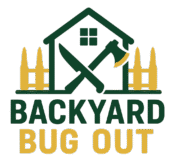When most people think about becoming a prepper, they picture stockpiles, bunkers, and expensive gear. But the truth is, preparedness starts with skills, not stuff. Skills don’t expire, they don’t take up space in your garage, and once you learn them—they’re yours for life.
The good news? You can build a solid foundation of prepping skills in just one weekend, right in your own backyard. Whether you’re a beginner or someone brushing up on the basics, these ten practical skills will boost your confidence and help you handle everyday emergencies like power outages, storms, or unexpected disruptions.
1. Fire Starting Without Matches
Knowing how to start a fire is one of the most essential prepping skills there is. Spend an afternoon practicing different fire-starting methods: ferro rods, magnesium strikers, and even the old battery-and-steel-wool trick. Learn how to identify dry tinder in your yard—pine needles, bark, and dry leaves all work great.
Build your fire on a safe, contained surface like a metal tray or old grill. Once you master it, try boiling water or cooking over it for bonus practice.
2. Water Purification Basics
Clean water is life. Take time to understand how to make questionable water safe to drink. Practice boiling, using household bleach (eight drops per gallon), and try out a small portable filter.
If you’ve built a rainwater collection system, test filtering that water for real-world practice. Learn the difference between filtering and purifying—filters remove debris, while purifiers kill pathogens.
For more details, see the CDC’s Emergency Water Storage & Disinfection Guidelines.
3. Basic First Aid and Trauma Response
You don’t need to be a medic to save a life. Spend a few hours reviewing first aid fundamentals: stopping bleeding, treating burns, splinting a sprain, and performing CPR.
Free Red Cross videos online can show you proper techniques. Build or review your own first aid kit, making sure it includes gloves, gauze, pain relief, and antiseptic wipes.
4. Map Reading and Navigation
In a world dependent on GPS, being able to navigate with a paper map and compass is a forgotten art. Pick up a topographic map of your area and learn how to identify terrain features. Practice plotting routes, estimating distances, and using a compass to orient yourself.
Even walking around your neighborhood using only a printed map can build confidence. Highlight local water sources, alternate routes, and potential bug-out paths as you practice.
5. DIY Food Preservation
Preserving food isn’t just for homesteaders—it’s a cornerstone of solid prepping skills. Dedicate part of your weekend to learning one preservation method: water-bath canning, dehydrating, or vacuum sealing.
Try dehydrating apple slices in your oven or sealing up homemade jerky. You’ll instantly understand the effort behind every jar in a prepper’s pantry.
6. Communication Without Cell Service
What happens if your phone dies or the towers go down? Learn basic radio communication. Handheld GMRS or FRS radios are affordable and great for short-range communication with family or neighbors.
Spend an hour setting them up, choosing channels, and agreeing on simple codes for emergencies (“Code 1: Safe, Code 2: Need help”).
You can learn more from the FCC’s Guide to Personal Radio Services.
7. Basic Tool Use and Repairs
Prepping isn’t just about gear—it’s about being resourceful. Practice using hand tools like hammers, screwdrivers, saws, and wrenches without relying on power tools. Fix a loose hinge, build a shelf, or even assemble a small raised garden bed.
The more familiar you are with tools, the more capable you’ll feel when something breaks during an emergency.
8. Cooking Off the Grid
Can you make a full meal if the power goes out? Practice cooking over charcoal, a camp stove, or even an improvised rocket stove. Try simple recipes like rice and beans, pancakes, or one-pot soups using only non-perishable ingredients.
If you have a backyard fire pit, this becomes both a test and a fun activity. You’ll learn heat control, timing, and how to cook with minimal tools—all critical prepping skills.
9. Situational Awareness and Home Security
Situational awareness is a mindset, not a product. Spend an hour walking through your home and yard with fresh eyes—notice entry points, hiding spots, and blind corners.
Check door locks, exterior lighting, and create a habit of scanning your surroundings when outside. Make sure your family knows what to do if a stranger comes to the door or if the power goes out at night.
Establish a family “check-in phrase” to verify identity if communication lines go down.
10. Financial Preparedness
Every prepper should understand the basics of emergency cash management. Review your savings, small bills, and where they’re stored. Build or update your emergency cash kit—include copies of key documents and a list of important phone numbers.
Even a few hundred dollars in small denominations can make a huge difference when ATMs are offline.
Bonus: Practice Makes Prepared
Learning prepping skills isn’t a one-and-done project—it’s a lifestyle. Once you’ve tried these ten over the weekend, pick one to revisit every month. Build small rituals into your routine: rotate food storage, test your radios, restock your kit.
Over time, these skills become second nature, turning your home into a self-reliant fortress instead of a waiting room for help.
FAQ
What prepping skill should I learn first?
Start with fire-starting or water purification—they’re fundamental and easy to practice at home.
Can I learn prepping skills without spending a lot of money?
Absolutely. Most of the skills above cost little to nothing. Focus on practice, not products.
How often should I refresh my prepping skills?
Every few months. Prepping is about staying ready, not just getting ready once.
What’s the best way to teach these prepping skills to my family?
Turn them into fun challenges—who can start a fire fastest or filter the cleanest water? Learning together keeps everyone invested.
Do I need to live rurally to be a prepper?
No. Urban and suburban preppers can thrive by focusing on practical, space-efficient skills like communication, first aid, and food storage.
